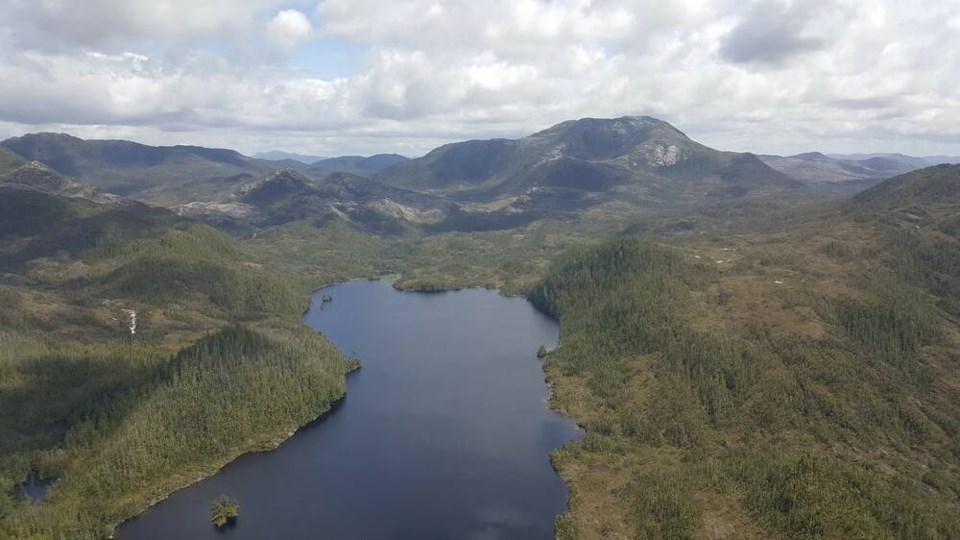When the Gitxaała launched litigation last month challenging the provincial government’s “free entry” mineral claim regime in our territory, we did so with the intention of providing a wake-up call to B.C.
Despite loud promises that it will uphold the United Nations Declaration on the Rights of Indigenous Peoples (UNDRIP), the B.C. government has shown no intention of reforming the Mineral Tenure Act, under which B.C. continues its gold rush-era practice of automatically granting mineral claims in Indigenous territories without notice, let alone consultation or consent.
As Gitxaała, we have lived in our territory, on the north coast of what is now known as British Columbia, for countless generations reaching back millennia. Our memory and understanding of our territory is deep and long.
That is not the case with the B.C. government, which continues to repeat disrespectful behaviour in Gitxaała territory without learning lessons from the harm it has caused even a few years before. This is painfully obvious when it comes to mining.
Take, for example, Gitxaała’s recent experience on Banks Island, in the heart of our territory.
In 2014, without Gitxaała’s consent, the province approved Banks Island Gold Ltd. to begin operating its Yellow Giant gold mine on Banks Island. In the leadup to the province’s approval of Yellow Giant, Gitxaała raised numerous concerns about the project, including a lack of adequate provincial measures to deal with non-compliance by the company that might contaminate Gitxaała territory.
Yet Gitxaała faced an uphill battle because the underlying mineral tenures for the Yellow Giant project — which according to provincial law gave the company exclusive rights to the minerals in that part of Gitxaała territory — had already been granted years before, without Gitxaała’s knowledge.
In other words, the company’s existing mineral claims gave it a foot in the door without Gitxaała consent or any consultation whatsoever, and this set the stage for a cascading series of additional provincial approvals for Yellow Giant despite Gitxaała’s objections.
Unfortunately, this inadequate provincial regime quickly resulted in disaster.
Not long after Yellow Giant began operating, Gitxaała youth employed at the mine tried to raise the alarm that Yellow Giant was causing environmental contamination. When a provincial mines inspector finally arrived, it was confirmed that the Yellow Giant mine had illegally released contamination and failed to report it.
The province issued a shutdown order for the Yellow Giant mine in 2015 and the company went bankrupt in 2016. Gitxaała is still dealing with the mess left by Yellow Giant, which has not been cleaned up. Senior executives for Banks Island Gold Ltd. face ongoing prosecution.
Yet despite these abject failures by the provincial government, and the lasting damage Gitxaała has been left with, Gitxaała learned that the province had granted a series of new mineral claims on Banks Island between 2018 and 2020, with no notice to Gitxaała whatsoever.
While the province may have a short memory, Gitxaała knows all too well how the story ends when B.C. grants rights to minerals in our territory without any notice, consultation or consent. We will not allow that story to repeat itself.
Gitxaała’s new legal challenge argues that B.C.’s automatic granting of mineral claims is unlawful on many levels.
It is contrary to the ayaawx, or Gitxaała law, which requires the House Chief’s consent in order to access and take from House territories.
It is contrary to Canada’s Constitution, which requires respect for Gitxaała title and governance, and mandates consultation and accommodation before the province makes decisions that impact our rights.
It is contrary to numerous requirements of UNDRIP, which the province has legally committed to uphold, including the right of free, prior and informed consent.
In an era where the provincial government seeks to score political points by trumpeting its commitment to reconciliation and UNDRIP, it is deeply disappointing that B.C. continues to stand behind the colonial relic that is the Mineral Tenure Act.
Gitxaała is going to court to require B.C. to live up to its obligations, since the province does not seem to be willing to do so on its own. One way or another, B.C.’s “free entry” mineral tenure regime deserves to become history.
Txagyet, also known as Clarence Innis, is Gisbutwada (Blackfish Clan) and a Gitxaała Sm’ooygit (Hereditary Chief) of the House of ‘Nangunaks. The Smgyigyetm Gitxaała (Hereditary Chiefs), in co-operation with the Gitxaała Nation elected council, are pursuing a legal challenge to B.C.’s mineral tenure regime in the British Columbia Supreme Court.



